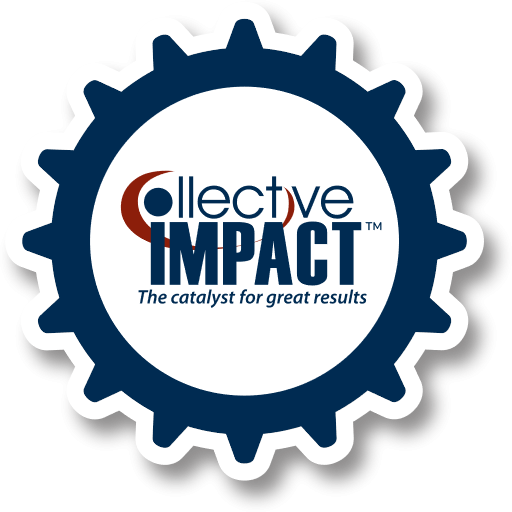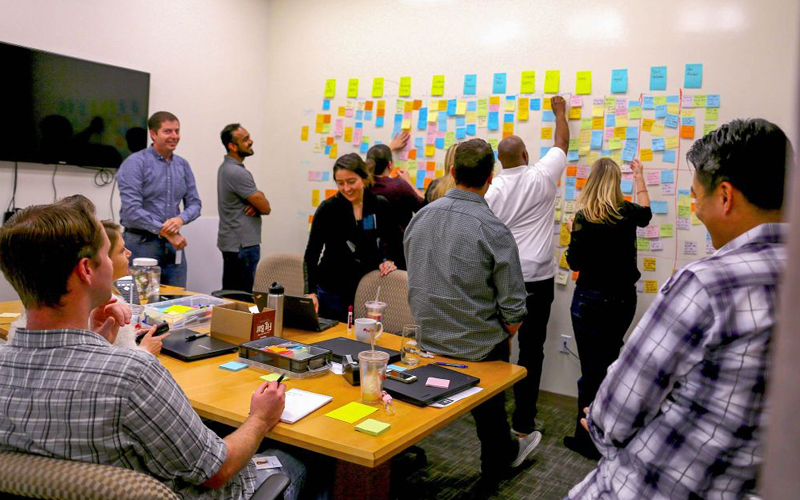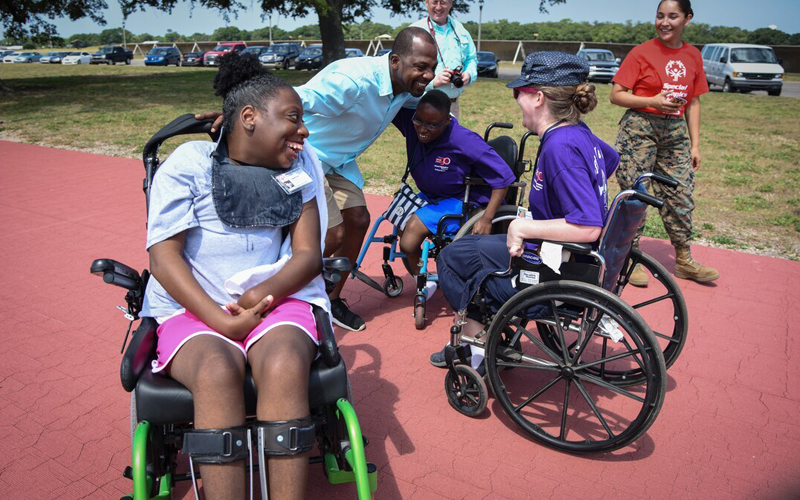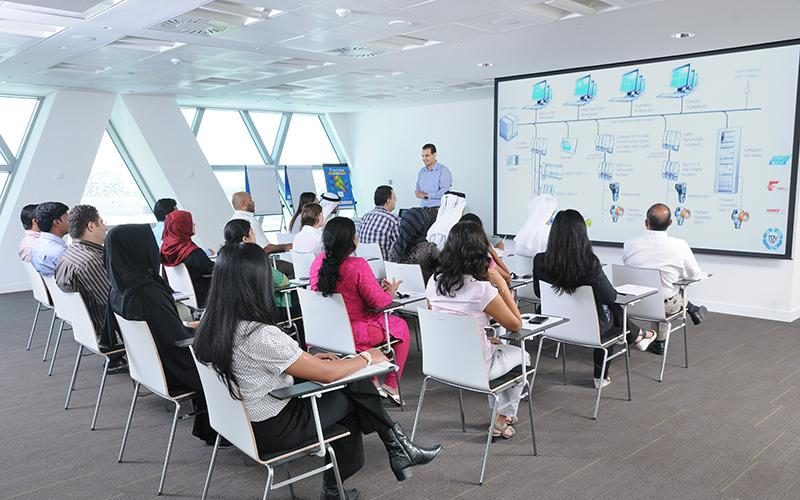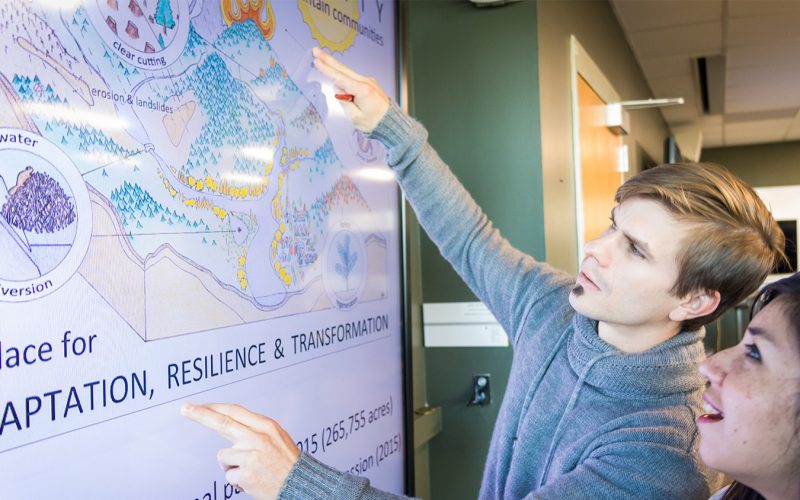| Appalachian Leadership Institute (ALI) |
| Collective Impact is working with faculty members of the University of Tennessee Knoxville, The Howard H. Baker Jr. Center for Public Policy, and Tuskegee University to design and implement the fifth year of the Appalachian Leadership Institute (ALI). ALI is a comprehensive leadership and economic development training opportunity for people who live and/or work in Appalachia and are passionate about helping their communities thrive. |
| Center for Rural Health Development, Inc. |
| The Center works to improve the health of West Virginians and strengthen West Virginia’s health care delivery system, especially in rural communities. The organization partners with other private and public organizations to ensure that the state’s health care infrastructure is “retrofitted” for the future. Collective Impact provided strategic planning services for the Center to help the organization forward its mission and plan for succession off its current long-term dynamic leader. |
| OneSpartanburg, Inc. |
| Collective Impact recently worked with OneSpartanburg, Inc. to conduct an Organizational Capacity and Performance Assessment for the organization. OneSpartanburg, Inc. is a community organization whose mission is to build a vibrant Spartanburg through business, economic and tourism development. In Spring 2019, Collective Impact helped develop a strategic integration plan to assist with the re-brand and merging of several independent organizations. This assessment was conducted to assess the organization post-merge to identify what is working well and what opportunities there may be for improvement. |
| Collaborative for Rural Health |
| Collective Impact worked with amazing partners from The Center for Rural Health Development, Inc., West Virginia State Office of Rural Health, West Virginia Rural Health Association, and West Virginia University Institute for Community and Rural Health to collectively implement the Appalachian Regional Commission (ARC) funded West Virginia Health Care workforce assessment, planning, and coalition building project! Out of this project, the dynamic Collaborative for Rural Health was born with a mission to strengthen health care and improve the health of the people in rural West Virginia! |
| Habitat for Humanity of the Tri-State |
| Habitat for Humanity of the Tri-State engaged Collective Impact to facilitate a strategic planning project for the organization. As part of the project, we examined the organization through our signature Planning Impact Domains: Governance and Leadership; Financial and Legal; Human Resources and Culture; Programs, Services, and Facilities, Internal Communication and Information Systems; and Marketing, Branding, and Relationships. In addition, we conducted environmental assessments to identify the organization’s strengths, challenges, opportunities, and capacity. |
| Garrett County Community Action Committee |
| Collective Impact worked with GCCAC, headquartered in Oakland Maryland, to conduct a joint strategic planning and financial management planning project. We reviewed and analyzed the various operational systems of the organization and engaged over three hundred internal and external stakeholders to assess the organization’s effectiveness and efficiencies. The project culminated with the development of strategic planning materials that serve as a “road map” to intentionally move the organization forward into the future. |
| Northern West Virginia Center for Independent Living |
| Collective Impact worked with NWVCIL to facilitate a strategic planning project for the organization. The project culminated with the development of strategic planning materials that built upon emerging opportunities identified throughout the project, recapped the activities and results of the planning process, and prioritized goals, strategies, and tactics to serve as a “road map” to intentionally move NWVCIL forward into the future. We also completed the organization’s 2019 strategic plan and helped with succession planning for the organizations long-term Executive Director. |
| Community Connections, Inc. (CCI) |
| Collective Impact was retained by Community Connections, Inc. to facilitate a comprehensive community needs assessment in eleven southern and southeastern WV counties – Fayette, Greenbrier, McDowell, Mercer, Monroe, Nicholas, Pocahontas, Raleigh, Summers, Webster, and Wyoming. The needs assessment focused on the four broad domains of health/mental health, education, financial stability/basic needs, and minority populations. We previously conducted a substance use assessment for the organization and the region. |
| Appalachian Tourism Study: Extending Our Welcome |
| Collective Impact worked with University of Tennessee Knoxville to conduct a comprehensive research project to better understand Appalachian tourism and identify opportunities to grow tourism activities and encourage business development throughout the region. The project was funded through a competitive grant from the Appalachian Regional Commission (ARC) – a federal economic development agency. To see the final report, click here! |
| Abandoned Property Coalition |
| The Abandoned Properties Coalition is dedicated to pursuing the revitalization of abandoned and dilapidated properties across West Virginia through sustainable planning and policies that positively contribute to community well-being. Collective Impact facilitated a planning workshop with coalition members to identify and prioritize policy issues and identify strategies for engaging the broader community for feedback. |
| Youth Services System, Inc. |
| Collective Impact was retained to help YSS assess the substance abuse prevention or substance use disorder prevention coalitions in Region 1 which includes the counties of Hancock, Brooke, Ohio, Marshall, and Wetzel. We used our signature ReIGNITE framework which focused our assessment on six key elements including: Inspire, Govern, Network, Implement, Train, and Evaluate. We also recently completed a Heath Equity and Social Determinants of Health assessment and have launched an Underage Youth Substance Use Environmental Scan and a LGBTQIA2S+ assessment for the region. |
| The Greater Kanawha Valley Foundation |
| For two consecutive years, Collective Impact provided planning and facilitation services for The Greater Kanawha Valley Foundation’s Building Bridges Leadership Institute (BBLI). BBLI advanced leadership knowledge and skills for nearly 50 senior staff of local nonprofit organizations. Over a six-month period, participants engaged in monthly learning and peer-to-peer sharing activities with national and local experts and nonprofit colleagues. |
| Job Squad, Inc. |
| Collective Impact provided strategic planning services for Job Squad, Inc. to update their strategic plan that we helped developed in 2019. Job Squad provides employment services and vocational skill development for individuals who experience barriers to employment. |
| WV Bureau for Public Health – Division of Health Promotion and Chronic Disease |
| Collective Impact provided strategic planning services for WV Bureau for Public Health – Division of Health Promotion and Chronic Disease. Specifically, we worked with the Division’s Comprehensive Cancer Program to build upon previous efforts and emerging opportunities identified through the strategic planning process. Ultimately, the information gathered through this process will provide a “road map” or guide for the Division to intentionally move forward into the future in its endeavors to impact its goals of decreasing the prevalence of obesity and improving key chronic disease indicators. |
| Prestera Center |
| Collective Impact worked with Prestera Center, on behalf of Region 5 of the West Virginia Prevention First Network, to conduct a Substance Use Disorder (SUD) Assessment and an Underage Youth Substance Use Environmental Scan for its ten-county service area in West Virginia which includes the counties of Mason, Putnam, Kanawha, Clay, Cabell, Wayne, Mingo, Logan, Lincoln, and Boone. Decisions for planning, policy development and implementation, and resource leveraging and allocation can be enhanced with access to the extensive data that was gathered, analyzed, and summarized as part of these efforts. |
| American Planning Association – West Virginia Chapter |
| Collective Impact provided strategic planning services for the West Virginia Chapter of the American Planning Association. The chapter had been fairly inactive over the past decade. However, some members came together to “reboot” the Chapter. As part of this “reboot,” the Chapter developed and adopted a mission, vision, core values, and lines of business statements. The Chapter also identified priority goals, strategies, and tactics for the strategic plan. |
| West Virginia DHHR Division of Early Care and Education |
| Collective Impact conducted a statewide child care assessment for WV DHHR Division of Early Care and Education. As part of the project. we learned what works well, what could be improved, and ways to best spend the state’s allocation (over 260 million) of American Rescue Plan funding. We are conduced public forums and administered surveys with parents, providers, and stakeholders. The project resulted in the development of an assessment report highlighting key findings. |
| Ohio County Community Needs Assessment |
| Collective Impact worked with the Ohio County Community Needs Assessment Partnership (CNAP) to conduct a comprehensive community needs assessment in order to identify priorities for the community. The CNAP is comprised of the following organizations: Ohio County Family Resource Network (FRN), Community Foundation for the Ohio Valley (CFOV), West Virginia University (WVU) Extension – Ohio County, and United Way of the Upper Ohio Valley. Findings from the assessment assist a large number of community partners across the county in planning for future services, educating the community, and leveraging and distributing resources over the next several years. |
